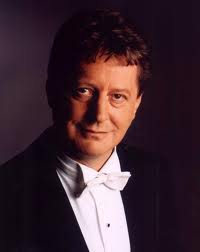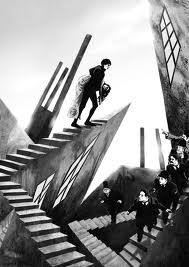The Dome, Brighton, 30 3 2014
The last concert of the season was also a milestone for those involved. Barry Wordsworth has been Musical Director for 25 years and in that time has conducted the orchestra for 200 performances. The warmth of his reception fully supported the respect from stage and auditorium.
The afternoon opened with Frank Bridge’s suite The Sea. It is easy to understand why Britten was so impressed when he heard the work as a teenager for it is both English and romantic, conjuring up visions of the sea around our coasts. Closer to Vaughan Williams than Debussy, the opening Seascape seems to look down on the vast ocean from the safety of the shore, where Seafoam immerses us to be splashed, flecked and drenched as we skim close to the surface. Moonlight brings an entirely different vision, a human perspective of moonlight on the sea rather than an abstract mood. Storm releases real power and danger, but when the violence has run its course Bridge rounds up his love for the sea with a restatement of the noble opening theme. Throughout the orchestra proved its mettle and sectional strengths.
American composer Lowell Liebermann will be a new name to most concert goers. His piano concerto was first performed in 1983 and is in essence a transition piece in terms of his own compositions. The opening Allegro is spiky and aggressive, with even the quieter moments retaining the opening tension. If there is a lyrical underpinning it is often lost in the forward thrust and violence around any melodic structures. Think Grieg sieved through Birtwhistle. The Larghissimo opens with solo piano in deceptively remote style, picking out intervals which suggest other scores without any sense of development. It is hauntingly written but none the less disturbing. The final Maccaber Dance is heavily staccato, driven headlong towards its climax, where brass bring a quasi Dies Irae. Robert Clark was the soloist and almost convinced us that the work was worth the considerable amount of blood, sweat and tears needed to bring it off.
After the interval we heard Brahms’ 4th Symphony. Maybe it was the exertions of the first half, but the opening movement was not as precisely phrased as one might have expected and the whole lacked energy and focus. This went for most of the second movement as well and it was not until the opening of the Allegro giocoso that the orchestra seemed to marshal itself to produce the level of attack and edge the score requires. Thankfully this continued easily into the finale with a strong muscular flow and wonderful rasping brass at the conclusion.
The next orchestral season opens on Sunday 5 October with works by Glinka, Rachmaninov and Shostakovich, but there are also four chamber concerts in Brighton Unitarian Church on Sundays from 6 July. All details from www.brightonphil.org.uk


